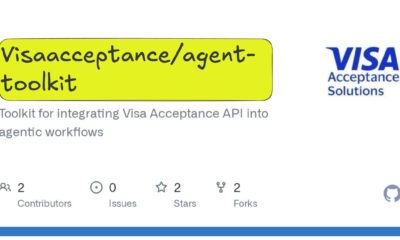Tools & Platforms
A new startup launches an AI-based platform for organizational wellbeing management – The Jerusalem Post
Tools & Platforms
Why AI’s greatest challenge isn’t chips, but people

There are currently more than 2,150 artificial intelligence companies operating in Israel, about 200 of which are branches of international firms. More than half of them focus on enterprise software, healthcare, fintech, and e-commerce. Compared to the broader high-tech sector, these companies tend to be more mature, raise more capital, and operate at later stages of the corporate lifecycle. Yet in the midst of the global AI revolution, Israel faces a strategic obstacle: a shortage of skilled and experienced talent capable of pushing the sector forward.
According to Dr. Ziv Katzir, director of the TELEM AI program at the Israel Innovation Authority, the challenge is global in scope. “This is not just an Israeli phenomenon,” Katzir says. “If someone wants to build unique intellectual property and create an AI company that grows into something big and significant, they need very special people. People with master’s degrees, preferably doctorates, plus years of experience. This journey takes 10–12 years, followed by another three years of work. There are no shortcuts. Demand for these people is growing worldwide, but there is no faster path to producing them.”
Decline in overall demand, shift to experienced workers
A new report from the Innovation Authority, prepared with the Samuel Neaman Institute for National Policy Research, shows a decline in the number of open AI positions, from 3,400 in 2023 to about 2,434 today. But the numbers mask an important trend: companies are no longer hiring juniors. Instead, they are targeting experienced experts.
Today, 65% of demand is for workers with at least three years of experience, compared to 44% in 2023. Meanwhile, demand for entry-level workers dropped from 53% to 31%. “Deep knowledge and experience are the key to success in the new world we are entering,” says Katzir. The greatest demand is for master’s degree holders with 5–6 years of experience.
The report examined companies developing core AI technologies such as image, audio, and text processing. The most sought-after roles are data scientists (40% of demand), followed by data engineers (29%) and ML-Ops specialists. Notably, 20% of roles fall into undefined and emerging categories, a reflection of how quickly the field is evolving.
“The job titles haven’t settled yet,” Katzir explains. “What we see in LinkedIn ads today looks different from a year ago, and will likely change again in the next two years.” In 2023, only 6% of advertised roles were undefined.
Academic pipeline falls short
Each year, fewer than 1,000 students in Israel graduate with advanced research degrees in fields like computer science, electrical engineering, and mathematics. Only 30%–40% enter the AI industry, roughly 300–400 new workers annually, far below demand. Within two years, the need for AI specialists is expected to reach 3,628 positions, leaving a widening gap between supply and demand.
“The current demand equals two to three full years of new graduates, and within two years, it will rise to four or five,” Katzir warns. “You can’t fold time. You can’t make 12 years into three. Long-term solutions are essential, but interim steps are needed as well.”
One clear trend is the renewed importance of formal education. A few years ago, the relevance of a bachelor’s degree for entering high-tech was questioned. Today, AI companies increasingly require advanced degrees and practical experience. “The industry has matured from a point where anyone calling themselves an AI expert was accepted as such,” Katzir says. “Now, deep knowledge and experience are recognized as the real competitive advantage.”
Efforts to bridge the gap
The Innovation Authority is pursuing several measures:
-
Expanding the talent base – Scholarships for advanced degrees and a unique IDF program that combines military service with master’s research.
-
Converting scientists from adjacent fields – Recruiting physics, chemistry, and math graduates and training them as AI researchers. “An AI researcher is first and foremost a scientist, not just a developer,” Katzir notes.
-
Bringing in experts from abroad – A pilot program launched in early 2025 to attract several hundred immigrants, returning Israelis, and foreign specialists.
However, importing talent faces limitations. Only 41% of companies say they are open to it, and 27% report barriers such as security clearance restrictions, cultural fit, regulatory hurdles, and time zone challenges.
The shortage of AI talent is not a passing issue but a challenge for years to come. The pace of technological progress, combined with the education and training bottleneck, raises questions about Israel’s ability to sustain leadership in the field. Still, Katzir remains cautiously optimistic.
“We are in a marathon, not a sprint,” he concludes. “There won’t be three times as many researchers here in two days, but Israel’s starting point is strong. If we continue to invest strategically, we can maintain Israel’s role as a global leader in AI.”
Tools & Platforms
Revealed: What our biggest companies worry about when it comes to AI – AFR
Tools & Platforms
Kakao CTO advocates treating AI as operating system, not model competition – 조선일보
-

 Business1 week ago
Business1 week agoThe Guardian view on Trump and the Fed: independence is no substitute for accountability | Editorial
-
Tools & Platforms4 weeks ago
Building Trust in Military AI Starts with Opening the Black Box – War on the Rocks
-

 Ethics & Policy1 month ago
Ethics & Policy1 month agoSDAIA Supports Saudi Arabia’s Leadership in Shaping Global AI Ethics, Policy, and Research – وكالة الأنباء السعودية
-

 Events & Conferences4 months ago
Events & Conferences4 months agoJourney to 1000 models: Scaling Instagram’s recommendation system
-

 Jobs & Careers2 months ago
Jobs & Careers2 months agoMumbai-based Perplexity Alternative Has 60k+ Users Without Funding
-

 Education2 months ago
Education2 months agoVEX Robotics launches AI-powered classroom robotics system
-

 Podcasts & Talks2 months ago
Podcasts & Talks2 months agoHappy 4th of July! 🎆 Made with Veo 3 in Gemini
-

 Education2 months ago
Education2 months agoMacron says UK and France have duty to tackle illegal migration ‘with humanity, solidarity and firmness’ – UK politics live | Politics
-

 Funding & Business2 months ago
Funding & Business2 months agoKayak and Expedia race to build AI travel agents that turn social posts into itineraries
-

 Podcasts & Talks2 months ago
Podcasts & Talks2 months agoOpenAI 🤝 @teamganassi






















